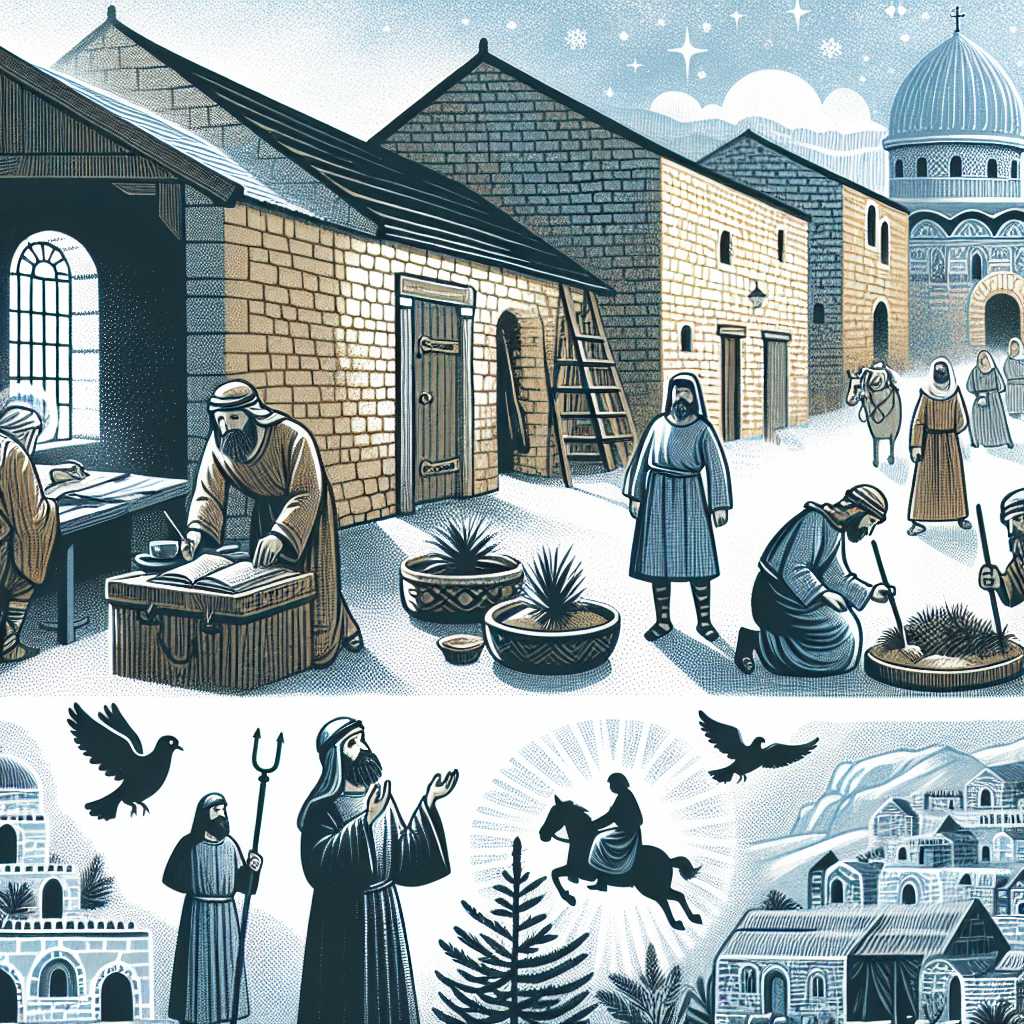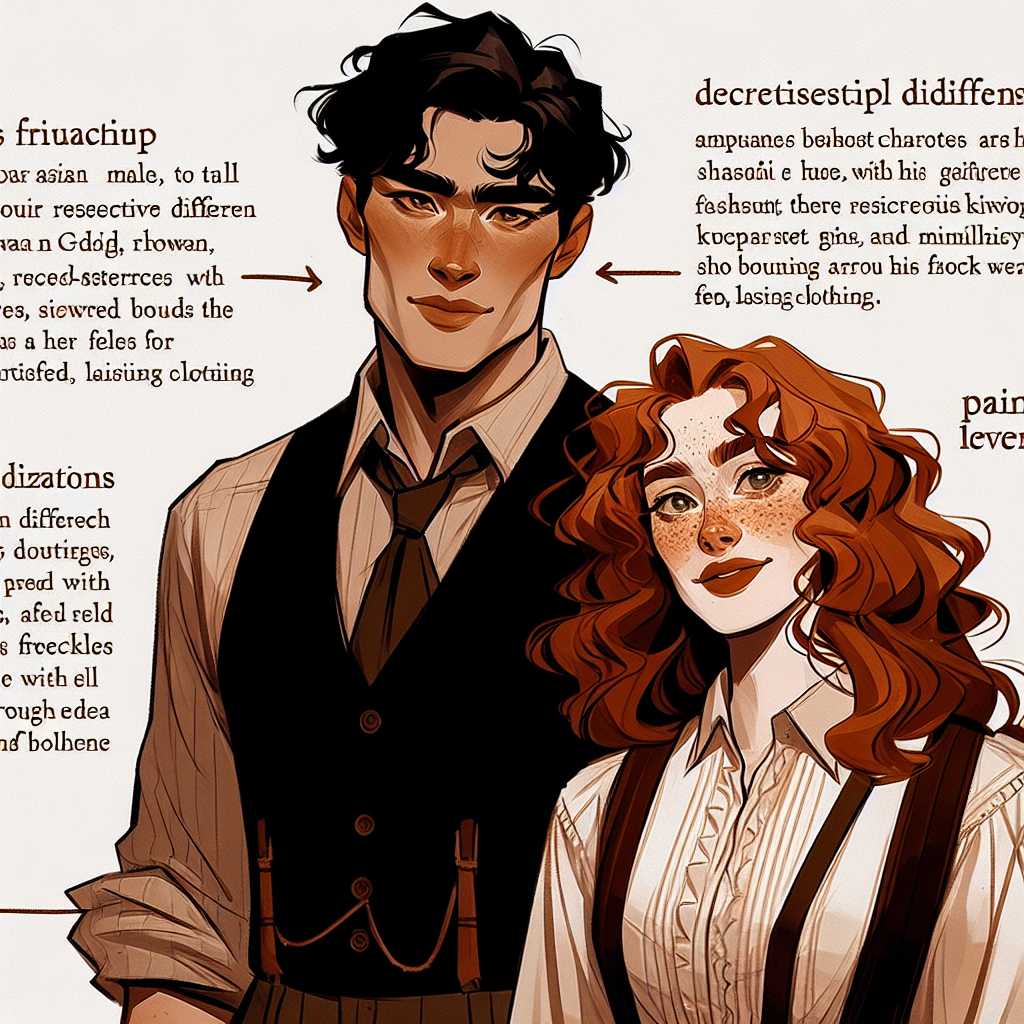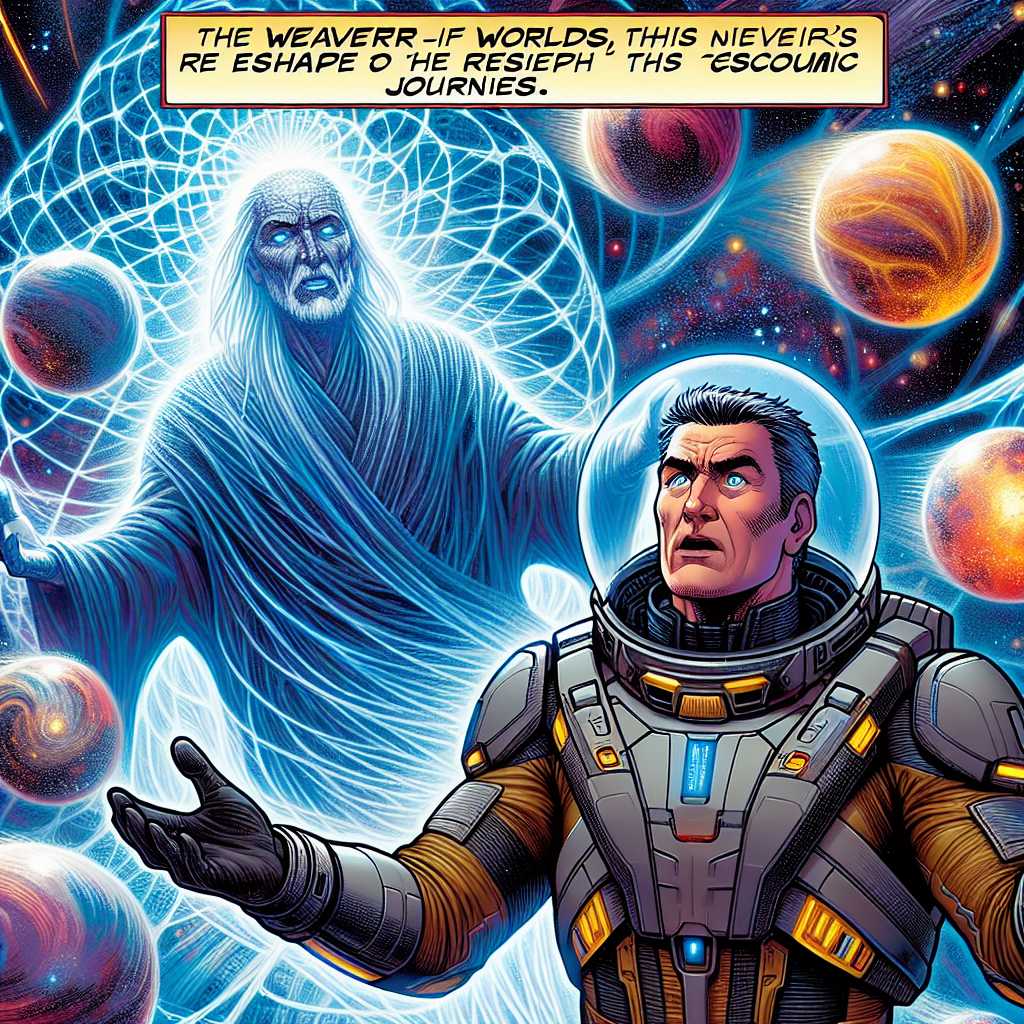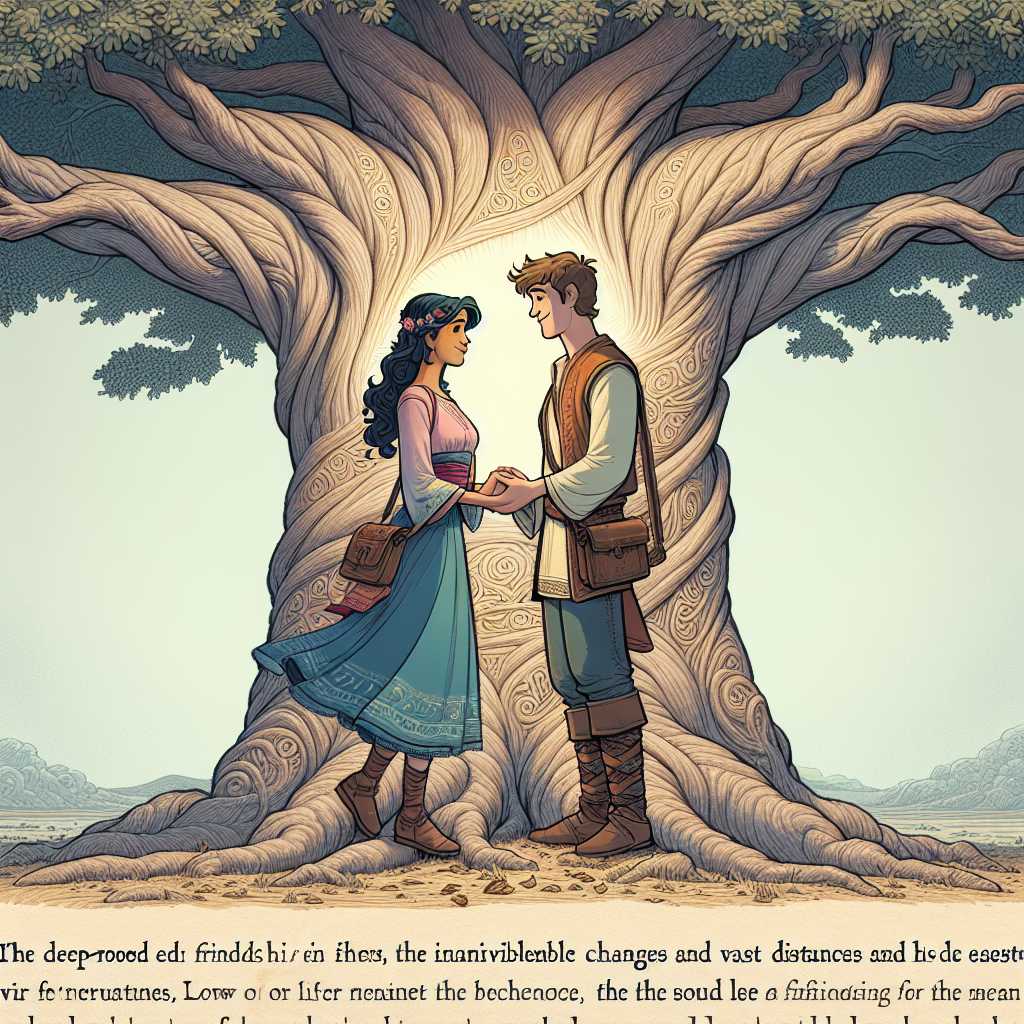
Once upon a time in the quaint little village of Bethlehem, a humble carpenter named Josef toiled tirelessly in his small workshop. He lived with his wife, Mary, and their newborn son, Jesus. The family led a simple life, grounded in faith and love.
Now, Bethlehem was not an ordinary village. It was the birthplace of many an important tale, but none more so than the story of Jesus. Though Josef and Mary tried to keep their lives private, whispers of Jesus’ remarkable birth had traveled far and wide. For He was no ordinary child; Jesus was the Son of God.
One starry night, as the family settled down for a peaceful evening, an unexpected knock echoed through their home. Josef opened the door to find three wise men—a trio of Magi—bearing gifts. They were elegantly garbed, and their eyes shimmered with wisdom and purpose.
"Peace be upon this household," the eldest of the Magi greeted, bowing his head. "We have journeyed from the East, guided by a miraculous star, to offer our adoration and gifts to the child born under its light."
Mary and Josef exchanged glances, awed by the magnitude of the moment. They graciously invited the wise men into their modest abode, where the Magi unwrapped their treasures—gold, frankincense, and myrrh—placing them before young Jesus as they knelt in reverence.
The wise men stayed only for a night, leaving at dawn to evade the jealous King Herod who sought Jesus’ life. Though brief, their visit affirmed the divine prophecy and deepened Josef and Mary’s faith.
Years passed, and Jesus grew in wisdom and stature, and in favor with God and man. Even as a child, He displayed an astonishing depth of insight and compassion. At the age of twelve, while in Jerusalem for the Passover feast, Jesus astonished the rabbis in the temple with His questions and understanding. Mary and Josef, filled with parental concern when they couldn’t initially find Him, were equally amazed—and perhaps a bit humbled—when He answered, "Did you not know that I must be about my Father’s business?"
As Jesus entered adulthood, He left the family carpentry business to fulfill His higher calling. He ventured into the wilderness, fasting for forty days and nights. Satan tempted Him thrice, offering Him food, power, and the kingdoms of the world. Yet Jesus resisted each temptation by drawing upon the word of God. "Man shall not live by bread alone," He declared. "You shall worship the Lord your God, and Him only shall you serve." And, "You shall not tempt the Lord your God."
After this period of testing, Jesus began His ministry in earnest. He gathered a group of twelve disciples—fishermen, a tax collector, and others considered ordinary by societal standards—and trained them to be 'fishers of men.' The miraculous acts He performed—healing the sick, turning water into wine, feeding thousands with a few loaves of bread and fish, and even raising the dead—testified to His divine authority.
Despite His growing following, Jesus often sought solitude to commune with His Father. Frequently, He climbed the Mount of Olives or other secluded places to pray and gain strength. On one solemn evening, knowing the trials that lay ahead, He took Peter, James, and John to the Garden of Gethsemane. Amid the olive trees, He prayed fervently, "Father, if it is possible, let this cup pass from Me; nevertheless, not as I will, but as You will."
That night, Judas Iscariot, one of His disciples, betrayed Him with a kiss, and Jesus was arrested. He was taken through a series of trials—first before the Sanhedrin, then Pontius Pilate, and finally Herod Antipas. Though innocent, He was sentenced to death by crucifixion, a punishment reserved for the most heinous of criminals.
The soldiers mocked Him, placing a crown of thorns upon His head and a reed in His hand, kneeling before Him in cruel jest, calling Him "King of the Jews." With each step toward Golgotha, the weight of His cross bore down heavily. Yet, Jesus' spirit remained unbroken. In His agony, He offered words of forgiveness, "Father, forgive them, for they do not know what they do."
Upon that cross, Jesus bore the sins of all humanity. As He breathed His last, He cried out, "It is finished," signaling the fulfillment of His earthly mission. The skies darkened, the earth quaked, and the curtain of the temple was torn in two, symbolizing the new covenant between God and humankind.
Jesus was laid in a borrowed tomb. On the third day, Mary Magdalene and other women came to anoint His body, only to find the stone rolled away and the tomb empty. An angel appeared and proclaimed, "He is not here, for He has risen, just as He said."
Word of Jesus’ resurrection spread like wildfire. He appeared to His disciples, offering peace and reaffirming His teachings. Before ascending to Heaven, He gave them a profound commission: "Go, therefore, and make disciples of all nations, baptizing them in the name of the Father and of the Son and of the Holy Spirit, teaching them to observe all things that I have commanded you; and lo, I am with you always, even to the end of the age."
And so, the humble carpenter's son from Bethlehem, who was both fully man and fully God, transformed the world forever through His life, death, and resurrection, offering eternal hope and salvation to all who believe.










